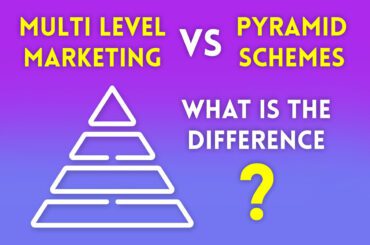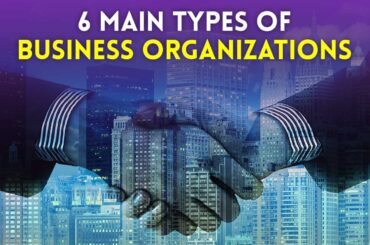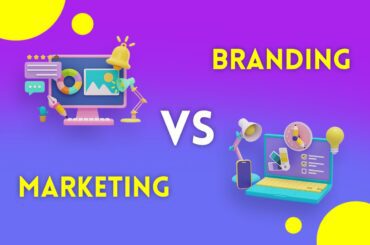Branding is responsible for our complete familiarity with any product we utilize. It’s the medium via which the firm and its clients communicate with one another. Here are 12 reasons why branding is essential for every business, no matter how big or small. Tools that aid in a brand’s widespread recognition is essential to its development. The most visible are the company’s logo, packaging, color themes, label designs, advertisements, and other promotional materials. Over time, intangibles like customer support, market focus, and reliable product quality will become more important. You should really have a brand. Here are 12 Reasons Why Branding Is Important To Your Company.
01. Value of the Company Rises in the Market

We’re going to cover 12 Reasons Why Branding Is Important To Your Company. Branding boosts a company’s worth since consumers are more inclined to buy from a well-known and respected business. Businesses may increase their asset value thanks to branding and sell for a price that everyone but a select few would agree is fair. This occurs each time Apple introduces a new iPhone. In addition, a company’s stock price might rise or fall depending on the public’s perception of the quality of the product or service it provides. This often occurs on commercial flights when passengers act inappropriately toward flight staff. Putting money into your brand is like putting money into the future of your business. Your company and the individuals who rely on it will benefit greatly from starting this process as soon as possible.
02. Organizational Impact on Society
Last but not least, branding elevates your and your company’s social standing. Many will recognize you for the positive impact you’ve had on their way of life. You will be seen as someone who has accomplished a lot, and they will respect and admire you for it. Having credibility makes it difficult for others to dismiss your thoughts. There’s a risk that no one will take notice of your business if they don’t know who you are. That’s a certain recipe for failure for any company. But if you have a well-known name behind you, you can have an impact in any area, whether it’s economics, the environment, or education. It’s not a coincidence that the general public looks up to billionaires like Bill Gates, Elon Musk, and Jeff Bezos. They put in lots of effort to establish their reputations and maintain their success.
Similarly, your current startup has the potential to become a major player in the market in 20 years, joining the ranks of the other four that do not fail. Building a name for yourself involves nothing more than consistent, hard labor.
03. Branding aids in setting a company’s wares apart from those of other businesses.
The process of creating a brand for your business is quite similar to developing your company’s USP (USP). Many blogs have addressed this fundamental idea. And failing to create one is a common pitfall for new businesses. Branding helps spread the word about what sets you apart from competitors. It raises awareness, leading to more potential repeat purchases. We keep repeating that everyone enhances their product in some manner. But unless you explain it to your consumers, they won’t understand.
The analogy that best illustrates this point is the choice between a Honda and a Ford all-terrain vehicle (AUV). 12 Reasons Why Branding Is Important To Your Company. It’s important that you embrace branding to reach your customers and provide them with a consistent experience across all channels. Promote what sets you apart since that’s what people will remember. It’s impossible to ignore a company with strong branding. Attracting thought leaders, authors, video producers, and social media marketers. When a company is able to attract and retain such individuals, it strengthens its creative muscle. Working in tandem with like-minded individuals may do wonders for brand awareness and the quality of your digital footprint. Since many listen to the advice of their favorite influencers and content producers, you may expand your following this way.
04. Asset
Brands are valuable commodities that you show the public accounts for a significant portion of your success. Equal in value to income and sales. A lot is at risk; dollars, creativity, and time are on the line. The difference between success and failure, in terms of either sales or bankruptcy, will come down to the quality of the brand.
Strong, long-lasting brands may be found in companies that have a defined mission. In addition, they are renowned for their authoritative management and their very proud workforce. Employees that take joy in their job are more likely to go above and beyond for customers, increase output, and safeguard the company’s good reputation. Southwest Airlines has a culture that has helped businesses thrive for decades.
05. sales
If we continue on the topic of sales, we can say that effective branding is the key to generating income. If your brand marketing techniques are successful, you will see financial rewards. Customers will be motivated to conduct experiments to see how well you perform, and the outcomes will dictate how successful you are in generating sales.
Branding aids in the marketing of new goods and services, which is one of its primary advantages. If consumers are already committed to a brand, they are more likely to be interested in the products the company introduces. Apple’s AirPods were a huge success when they were released in 2018, easily beating out competitors like Samsung and Xiaomi in the wireless headphone market. Strategy Analytics found that Apple’s AirPods had a worldwide market share of more than 50%.
06. Deliverance
Creating a brand is like making a public statement. You pledge to follow through on the company’s claims and commitments. In the same way, the company’s values should permeate the whole operation. Otherwise, employees and clients would feel alienated from one another. Do not say on your brand anything that you are not prepared to deliver on.
Recurring business is much easier to achieve when customers have confidence in your reliability in meeting their expectations. Having a strong brand identity can help you stand out from the crowd and succeed. Launching a new product or expanding into a new market is, therefore, safer than it was at the outset. It’s not simple, for instance, to get a loan of $30,000 or save up that much money to buy a brand new automobile. Do you believe the typical Joe, when presented with that rare opportunity, would choose an unbranded Jeep over a brand new Chevrolet? No, probably not.
07. Perception
Branding allows businesses to show their consumers their true colors. Now is the time to speak frankly and openly about what this organization stands for. All eyes will be on you because of how unique your design is in terms of aesthetics and tone. Every consumer has their own reservations about trying anything new, but a solid brand may help you break through by establishing yourself as a reliable company whose principles they can believe in. Even a very new firm may quickly gain credibility in the marketplace by providing high-quality goods and services, providing outstanding support to customers, and using engaging images in their advertising campaigns.
08. Preference
The significance of proper packaging and labeling in brand building is something we’ve often stressed. Every consumer has reservations about trying anything new, but if you have a solid brand, you can overcome these doubts and show that your company is trustworthy and stands for something important to its clientele. The combination of cutting-edge advertising with first-rate goods and services, outstanding client support, and engaging imagery can elevate any firm, no matter how modest its resources.
This is the effect that branding has on a product. You might think of the packaging as your own personal sales force. Customers will recall every detail, down to the hues and shapes used in the font. Customers are more likely to make repeat purchases if they have a positive encounter with products.
Consumers have a stronger emotional investment in well-known brands than in those without one. A customer’s positive experience with a brand may form a relationship that lasts a lifetime. That’s the kind of relationship that can’t be planned for; it simply occurs.
09. Loyalty
Customers will be more loyal to a brand they identify with. In good times or bad, you can always count on the support of your loyal client base. To those they know, they will impart an encouraging word. They will be able to bring in new customers because of their connections.
Building a solid brand from the ground up is essential for any company. Once a firm has discovered its branding – corporate philosophy, colors, font, etc., all subsequent efforts may be based around it. All subsequent marketing initiatives can now build upon this solid groundwork. This fosters uniformity across a brand, which in turn makes it easier for consumers to identify with that brand. Picture a company that regularly alters its logo. Most customers wouldn’t want to buy products or services from brands that are inconsistent with one another.
10. Trust
Good branding is what keeps customers coming back for more of a product or service they already know and like. A reputable firm with amazing goods mixed with clever branding strikes all the right chords with consumers. In the long run, this will lead to more loyal customers. Apple is a great illustration of customer loyalty since it has one of the most compelling brand histories in history. It accomplished its goal of consumer loyalty by appealing to their emotions. One of the main reasons for Apple’s market dominance is the dedication of its customers to the company’s brand.
Marketers know that consumers are more likely to buy a product if they are already familiar with its branding elements (such as its color scheme, central subject, logo, etc.). This is due to their prior exposure to your brand and the values it represents. A good brand may be anything from clean and basic to bold and eye-catching, and it will always stand out in a crowded marketplace.
Customers will develop faith in your company after they have dealt with you on many occasions. If you want your consumers to trust you, you have to provide them with a reason to do so. As the first clientele will serve as a barometer for future sales, it’s crucial that the brand’s presentation be flawless. The best way to keep customers coming back is to provide them with excellent service, ensure they like using the product or service, and foster a pleasant relationship with them via good online interactions through social media.
Consistency will be easier if clients have developed familiarity with your brand. It will help you focus on quality and ensure that you always provide the best service possible. Those businesses that last a long time have a name to uphold. Consistency is essential to the growth and success of any firm. This relates to not just the quality of your product but also your interactions with customers and staff. Some studies have shown that public support for socially responsible businesses has grown as a result of the COVID-19 lockdowns. Clients are more likely to do business with those they perceive to be genuine.
11. Extension
There is a vast potential audience for brand awareness campaigns. People in mainstream, digital, mobile, and specialized markets are all reached. It encompasses everything you sell now and everything you want to sell in the future. In business, nothing is more valuable than a loyal customer base. The likelihood of making a sale to a returning client is fourteen times higher than that of making a sale to a new customer. The goal of branding is to make your product more than just a commodity to your target market. Consistently high-quality results in satisfied customers and other benefits such as word-of-mouth advertising and social proof. Furthermore, consumers are more inclined to have faith in a recognizable brand name than in an unknown one. Because of this, building your brand is essential.
12. Protection
Branding serves as a barrier between you and rivals who are eager to replicate your success. Without it, others may easily replicate your success and claim it as their own. Even though your competitors sell the same or comparable goods, they can’t touch your unique flair and presentation. Because of your brand’s prominence, it will be difficult for competitors to steal your ideas, goods, package design, logo, or anything else linked with your firm. In addition, you are free to set whatever prices you choose for franchisees.
People will associate your brand with a certain personality or quality. The significance of company branding cannot be emphasized. Branding is the strategy and identity that consumers associate with your company. I want your brand to stand for joy, ease, devotion, and enduring memories. New corporate logos are often the first step in rebranding an organization. Businesses often fail to see the significance of establishing a strong brand identity. Get in touch with us, and we’ll assist you in developing a strong corporate identity.
conclusion
We covered 12 Reasons Why Branding Is Important To Your Company. Imagine a brand as an individual; they each have their own look, speech pattern, set of beliefs, circle of acquaintances, and backstory. This is what makes us unique, and it is also what distinguishes one brand from another. Minute Maid is a fantastic case in point of a company that has effectively established a consistent visual brand identity across all of its packaging. They updated the look of the packaging for their high-end items in 2009 so that they could be easily distinguished from the competition. Consumers seldom form emotional attachments to individual items but rather to certain brands. So, let’s revisit the example from the “What is Branding?” article. Consumers would purchase any water bottle since they all look the same without any branding on the bottle.
But branding makes your product unique. It’s what convinces shoppers to pick up your water instead of another brand while they’re at the grocery store. It’s not the unique flavor that keeps them coming back; rather, it’s the familiarity and comfort they feel with your brand. Your secret salesman packing and the assurances you provided to the customer have paid off, and they have made their purchase from you. Customers are more likely to return if they have come to trust your brand, which is something you can do via branding. We’ve discussed how your values are a part of the larger picture that is your brand. These principles are the bedrock of your brand, and they’re what people will remember most about your company and the impression it leaves on them.
Branding your organization as an attractive place to work will help you find and keep the best personnel. When done well, it answers the question “why I should work for you” by presenting your company as an attractive place to work. Google is a fantastic brand example because of how well it attracts and retains workers. They advertise all of the great amenities they provide their employees (including sleep pods, free food, and opportunities to travel) on their website.
Here are 12 Reasons Why Branding is Important to Your Company. The slogan “Do great things that matter” on the Google Careers page is enough to make anybody want to work there. Branding strategies are developed for a variety of reasons, not only to expand an organization’s consumer base or recruit the best and brightest employees. Companies use branding to attract consumers, workers, investors, business partners, suppliers, governments, opinion leaders, buyers, licensees, and anyone who has an interest in the company’s success.












